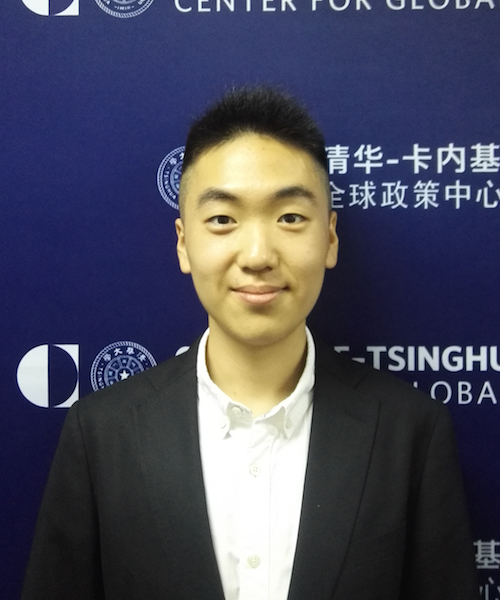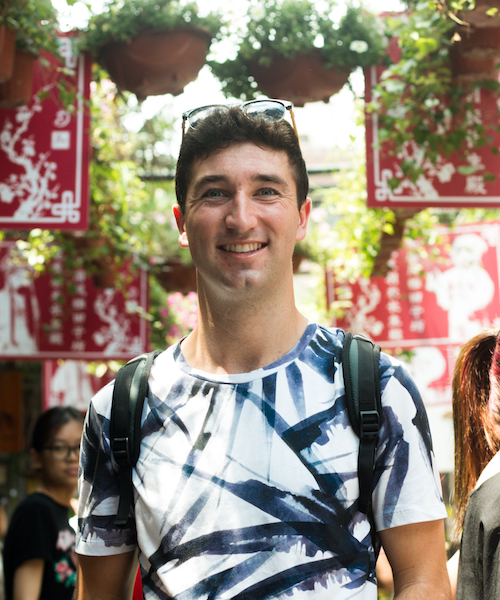
Addressing Global Issues with Innovations of the Digital Age —A Case on Combating Internet Terrorism
Chenyu Wu | June 3, 2018
Responding To: Living in a Digital Age: How Young Chinese and Americans Can Employ Innovation to Resolve Global Issues
Yamillet Payano
For those born in the 1990s and the early millennium, we have been trained to develop an intuitive sense of the internet of things. It is this “tech-sense” that will allow us to continue to work towards the development of a truly networked world. Those of us born in our generation, and in the generations that follow, will less keenly feel the borders of nations and will be less inclined to create fixed categories that would provide a barrier to trans-Pacific relations. We will seek to connect and collaborate, creating a space for understanding each other. Therefore, my generation and those that follow in the United States and China can use social media and blockchain technology to further collaboration among both countries.
As we conceptualize the digital world, we must consider social media and its implications. As social media continues to become more important in our daily lives, we see these platforms used as a powerful means to share information from one peer to another. If there is an event occurring somewhere around the world you will see videos, pictures, and posts. Social media platforms are horizontally oriented networks of information flows. These flows of information provide the bedrock for understanding major events as they occur around the world, superseding traditional flows of information and news media. An example would be how social media, or more precisely Twitter, played a role in the Arab uprisings. Civic leaders in Arab countries made use of social media, not only to inform and organize those within their countries, but also as a means to share their problems with the world [1].
Horizontally oriented networks of information could help bridge the gap between China and the United States. However, when talking about these two particular countries, the flow of information is disrupted by government censorship. Important platforms such as YouTube, Facebook and Twitter are blocked in China. This has created an opportunity for the state- approved social media platforms in China to flourish. In this situation how do we interact? There are a few possibilities. The most passive approach is that the Chinese media platforms may gain greater attraction overseas and develop more internationally friendly means of access. A more proactive and individualist method would be to observe the rise in VPN usage behind the Chinese firewall, which will become necessary as Chinese industries become more international. A policy approach would be to work towards an increasingly less restricted internet; perhaps shifting the governance model to monitoring active information transfers rather than restricting access may also prove useful. While these are not ideal solutions, the aforementioned potential scenarios show that the issue of censorship is not necessarily insurmountable.
Another issue with horizontally oriented networks on the internet is a lack of verifiability and credibility. Most of these flows of information are spontaneous, shared among friends and information goes viral. Yet, this can be manipulated, and information networks can be abused. Recent electoral woes have made this abundantly clear.
As I think about solutions to this issue another form of technology that could be helpful in tackling our pressing social issues comes to mind -- blockchain. That is huge, and currently causing a buzz regarding internet crypto-currencies, but this is perhaps the least interesting aspect of the technology. Blockchain can play a role in safeguarding the credibility of information flows, blockchain may even help us redact articles that are published with errors if they were inserted along the “chain” of information without any real means of verification. If properly put together, one may be able to utilize the technology to prevent information from being tampered with or manipulated. The technology more broadly, of course, has profound importance to the U.S.-China bilateral relationship.
If there is something that unites both the United States and China it is our economic interests, and as both the United States and China are fast developing in the blockchain space it will be essential for collaboration to happen. Blockchain is mostly known as the technology behind bitcoin. However, blockchain is a technology that enables us to have discrete, effective, and accountable flows of information, privacy, and capital across the world. Therefore, according to the Cathy Mulligan, co-director of Imperial College Centre for Cryptocurrency Research, “Blockchain is about the exchange of value and how to make it instant and decentralised.” This might sound like blockchain is part of this new digitalization era, but blockchain is reinventing how business interactions happen. Therefore, as we think about how to grapple with pressing global issues, blockchain give us an opportunity to go back to the white board and redefine many of our systems.
Rapid technological innovation and its implementation is something that people in our generation are the most capable of noticing and able to act on. Innovation is not merely a measure of instrumentality, it is the engine by which we propel our lives forward. The youth of China and the United States are uniquely situated to engage in this milieu, and are best capable of adapting to challenges and disruptions. Be it able to inhabit and capitalize on horizontal flows of information, or to understand the underlying potential of blockchain, it is our generation that will be looked towards to bring about an increasingly globalized world by understanding the problems we face, as well as the solutions required to solve them.
[1] Howard, Philip and Muzammil M. Hussain. "The Role of Digital Media." Journal of Democracy. July 2011.
Yamillet Payano is a senior at American University majoring in economics and mathematics with a minor in Chinese.

Chenyu Wu | June 3, 2018

Yunxin Wang | June 1, 2018

Michael Mullaney | May 30, 2018

Hongjin Xu | May 29, 2018

Cynthia Wang | May 28, 2018

Ruolin Zhao | May 27, 2018

Jessie Dalman | May 23, 2018

Haile Chen | May 22, 2018